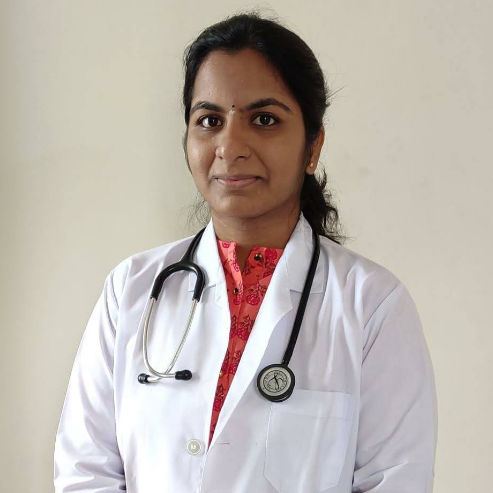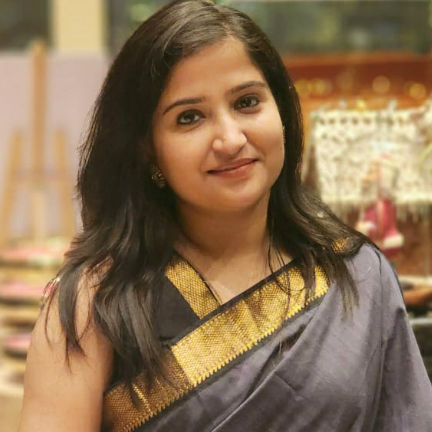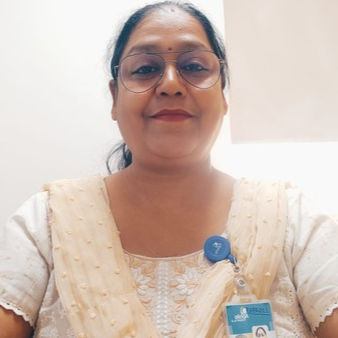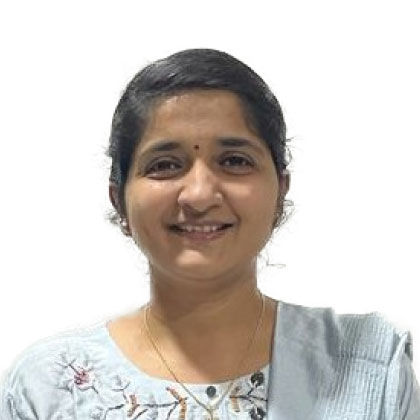Welcome User
Relevance
(17 doctors)

Dr. Pavan Kumar S K
Urologist
11 Years • MBBS, MS , Mch( Urology) DNB (Urology)
Bengaluru
Apollo Clinic, JP nagar, Bengaluru

Dr. Ramalinga Reddy
General Physician
5 Years • MBBS MD General medicine
Bengaluru
PRESTIGE SHANTHINIKETAN - SOCIETY CLINIC, Bengaluru
Ms. Aleena Babu
Clinical Psychologist
5 Years • M.Sc Clinical Psychology
Bengaluru
Apollo Clinic, Sarjapur Road, Bengaluru

Dr Kanchan Durugkar
Infertility Specialist
13 Years • MBBS, MS DNB OBGY IVF consultant
Pune
Apollo Clinic, Nigdi, Pune

Dr. Bhethala Sharan Prakash
General Physician/ Internal Medicine Specialist
5 Years • MBBS MD
Bengaluru
PRESTIGE SHANTHINIKETAN - SOCIETY CLINIC, Bengaluru

Dr. Sushith C
General Physician
2 Years • MBBS
Bengaluru
PRESTIGE SHANTHINIKETAN - SOCIETY CLINIC, Bengaluru

Dr G Prathyusha
General Physician/ Internal Medicine Specialist
6 Years • MBBS DNB (Family medicine), CCEBDM (Diabetology), PGDGM (Geriatrics), Primary care Rheumatologist.
Bengaluru
PRESTIGE SHANTHINIKETAN - SOCIETY CLINIC, Bengaluru
Dr. L Sanjay
Internal Medicine Specialist Diabetologist
15 Years • MBBS,MD(General Medicine)
Manikonda Jagir
Apollo Clinic, Manikonda, Manikonda Jagir

Ms. Kriti Menon
Genetic Counselor
7 Years • B.Tech (Genetic Engineering), PGDPC, BGCI Level II Certified Genetic Counselor
Delhi
Apollo Hospitals Indraprastha, Delhi

Ms. Upasana Mukherjee
Genetic Counselor
10 Years • B.Sc.(Hons.) Genetics, M.Sc. Biomedical Genetics with a specialization in Genetic Counseling, Consultant Genetic Counselor.
Kolkata
Apollo Multispeciality Hospitals , Kolkata, Kolkata

Dr. Saswati Mukhopadhyay
Medical Geneticist
10 Years • MBBS, DNB (G&O), DNB (Medical Genetics)
Kolkata
Apollo Multispeciality Hospitals , Kolkata, Kolkata
(25+ Patients)
Dr. Sasikamalam
General Practitioner
1 Years • MBBS
COIMBATORE
Apollo Sugar Clinic Coimbatore, COIMBATORE

Ms. Reena Trivedi
Genetic Counselor
8 Years • M.Sc, Cert. Genetic Counseling. Level 2, BGCI
Ahmedabad
Apollo Hospitals Gandhinagar, Ahmedabad

Dr Snehal Somnath Mallakmir
Clinical Geneticist And Counselor
10 Years • MBBS, DCH, Fellowship in Clinical Genetics
Mumbai
Apollo Hospitals CBD Belapur, Mumbai
Dr. Kalpana Gowrishankar
Clinical Geneticist And Counselor
25 Years • MBBS, DCH, PhD ( Genetics)
Chennai
Apollo Children Hospitals Greams Road, Chennai
(50+ Patients)
Genetic Counselling
Consulting a genetic counsellor is now easier than ever with Apollo 24|7. Our platform offers a seamless experience for booking appointments with top genetic counsellors online or via phone. With a wide network of trusted hospitals and clinics across India, you can access expert genetic counselling services at your convenience. Our experienced genetic counsellors provide personalised guidance to help you understand and manage genetic conditions, assess risks, and make informed decisions about your health. Don't wait any longer – book your appointment with a skilled genetic counsellor today and take the first step towards better health for you and your family.
What is Genetic Counselling?
Genetic counselling is a specialist healthcare service that involves assessing the risk of genetic disorders within families and advising individuals or couples accordingly. This field combines principles of genetics, biology, and counselling to provide crucial information about how genetic conditions might affect individuals and their families. Genetic counsellors help clients understand and adapt to the medical, psychological, and familial implications of genetic contributions to disease.
The focus of genetic counselling is on prevention and informed decision-making. It is particularly relevant in prenatal screening, cancer screening, and testing for hereditary diseases. The service is essential in healthcare as it assists in the early detection and management of genetic disorders, which can significantly influence treatment options and outcomes.
Who is a Genetic Counsellor?
A genetic counsellor is a healthcare professional with specialised training in medical genetics and counselling. They hold a Master's degree in genetic counselling or a related field, often accredited by a national board. Genetic counsellors possess expertise in interpreting genetic testing results and understanding the risks of inherited conditions.
The role involves guiding individuals and families through the process of genetic testing, including the decision to undergo testing, understanding the results, and coping with the consequences of those results.
They manage conditions such as hereditary cancers, rare genetic disorders, and congenital anomalies. Genetic counsellors play a critical role in providing support and information, helping clients make informed health and reproductive decisions.
What Does a Genetic Counsellor Do?
A genetic counsellor provides specialised guidance and support to individuals and families who may be at risk of, or are affected by, genetic conditions. Their role is multifaceted, combining clinical knowledge with empathetic communication to help clients navigate complex genetic information and make informed decisions.
Risk Assessment: Genetic counsellors assess the risk of genetic disorders by analysing family history and medical records to identify potential genetic risks.
Genetic Testing: They facilitate and interpret genetic tests, explaining the implications of test results to clients. This includes discussing the probability of developing or passing on a genetic disorder.
Counselling Services: Genetic counsellors provide emotional support and counselling to help clients cope with the psychological aspects of genetic testing and the results. They ensure clients fully understand their options and the potential impact on their health and their family's health.
Educational Outreach: They educate both clients and healthcare professionals about genetic conditions and the benefits, risks, and limitations of genetic testing.
Research and Ethics: Many genetic counsellors participate in research, contributing to advancements in genetics and genomics. They also uphold ethical standards by ensuring that genetic information is used appropriately and maintaining confidentiality.
Collaboration with Healthcare Professionals: Genetic counsellors work closely with doctors, nurses, and other healthcare providers to integrate genetic testing results into the patient's overall health management plan.
By providing these services, genetic counsellors play a crucial role in preventive health care, helping individuals understand their genetic health so they can make informed medical and lifestyle decisions.
What are the Other Sub-specialities of Genetic Counselling?
Genetic counselling encompasses a range of sub-specialities, each focused on specific areas of medicine where genetics plays a crucial role. Here’s an overview of these sub-specialities:
Prenatal Genetic Counselling: This area involves counselling expectant parents about the genetic risks their baby might face. It includes discussing the outcomes of prenatal screenings and diagnostic tests.
Pediatric Genetic Counselling: Pediatric genetic counsellors work with children and their families to manage genetic disorders diagnosed in infancy or childhood, providing guidance on treatment options and future risks.
Cancer Genetic Counselling: Specialising in hereditary cancers, these counsellors assess an individual's risk of developing inherited cancer syndromes and advise on preventive measures and screening.
Neurology Genetic Counselling: This sub-speciality focuses on genetic disorders that affect the nervous system, such as Huntington’s disease and muscular dystrophy. A genes specialist provides crucial information on progression and management.
Cardiovascular Genetic Counselling: Counsellors in this field evaluate the risk of inherited heart conditions, such as hypertrophic cardiomyopathy, guiding patients and families through genetic testing and subsequent care options.
Reproductive Genetic Counselling: This involves advising individuals or couples about genetic risks that could affect their offspring, including carrier screening and implications for reproductive choices.
Metabolic Genetic Counselling: These counsellors deal with inherited metabolic disorders, helping to manage conditions through dietary and lifestyle adjustments, as well as medication.
Adult Genetic Counselling: Focused on late-onset genetic disorders, this counselling helps adults understand and manage conditions that may not appear until later in life.
Pharmacogenetic Counselling: Pharmacogenetic counsellors guide patients on how their genetic profile can affect their response to certain medications, ensuring personalised drug therapy.
Hereditary Syndromes Counselling: Specialists in this area support individuals with complex hereditary syndromes, providing insights into management and preventive care.
Each of these sub-specialities offers targeted support, guided by a genetic testing doctor, to help individuals understand their genetic health, make informed decisions, and manage their conditions effectively.
Whether consulting a DNA specialist for detailed genetic analysis or a genes doctor for family genetic history, the field of genetic counselling is essential in providing personalised healthcare based on genetic information.
What are the Genetic Counselling Examinations or Tests Performed by the Genetic Counsellor?
Genetic counsellors perform a range of examinations and tests designed to identify genetic predispositions to various medical conditions. Here are some of the most common diagnostic tests they administer:
Family History Assessment: This initial evaluation involves detailed discussions about the client’s family medical history to identify patterns that might suggest genetic conditions.
Genetic Testing: Utilising blood, saliva, or tissue samples, genetic testing looks for changes in chromosomes, genes, or proteins. The results can confirm or rule out a suspected genetic condition or help determine a person’s chance of developing or passing on a genetic disorder.
Carrier Testing: This type of test is often recommended for individuals with a family history of a genetic disorder or for couples considering pregnancy. It determines whether the person carries a gene for certain inherited conditions that could be passed to children.
Prenatal Testing: Performed during pregnancy, this test assesses the genetics of the fetus to identify any abnormalities in chromosomes that could indicate conditions like Down syndrome.
Newborn Screening: This is a routine test performed shortly after birth to identify genetic disorders that are treatable early in life.
Predictive and Presymptomatic Testing: If there is a family history of a genetic condition, this testing can identify mutations that increase the risk of developing certain diseases before symptoms arise.
Pharmacogenomics: Tests how genes affect a person’s response to drugs. This can tailor medication plans to individuals, enhancing effectiveness and reducing side effects.
These examinations are essential in providing the necessary information for making informed decisions about managing health and planning for the future. If you are considering genetic testing or need tailored genetic advice, you can book genetic counsellor to guide you through the process and help interpret the results accurately.
What are the Common Conditions & Diseases that Genetic Counsellors Treat?
Genetic counsellors address a wide array of genetic conditions and diseases, guiding patients through diagnosis, management, and prevention. Here are the top 15 conditions commonly managed in this field:
Cystic Fibrosis: A genetic disorder that affects the respiratory and digestive systems.
Down Syndrome: A genetic chromosome 21 disorder causing developmental and intellectual delays.
Huntington’s Disease: An inherited condition that causes the progressive breakdown of nerve cells in the brain.
Sickle Cell Disease: A group of disorders that affect haemoglobin, the molecule in red blood cells that delivers oxygen to cells throughout the body.
Thalassemia: A blood disorder involving less than normal amounts of an oxygen-carrying protein.
Haemophilia: A rare disorder in which your blood doesn't clot normally.
Duchenne Muscular Dystrophy: An inherited disorder of progressive muscular weakness.
BRCA1/BRCA2: Genetic mutations that significantly increase the risk of breast and ovarian cancer.
Marfan Syndrome: A genetic disorder that affects the body’s connective tissue.
Lynch Syndrome: An inherited condition that increases the risk of many types of cancer.
Fragile X Syndrome: A genetic condition causing intellectual disability.
Tay-Sachs Disease: A rare, inherited disorder that destroys nerve cells in the brain and spinal cord.
Turner Syndrome: A chromosomal disorder that affects development in females.
Klinefelter Syndrome: A genetic condition affecting males, characterised by an extra X chromosome.
Rett Syndrome: A rare genetic neurological and developmental disorder that affects the way the brain develops.
These conditions highlight the crucial role of genetic counsellors in providing expert care and support to those affected by genetic diseases.
Reasons to See a Genetic Counsellor
Visiting a genetic counsellor is pivotal when facing genetic health concerns or planning for the future. Here are the primary reasons for consulting a specialist:
Family History of Genetic Disorders: If there’s a known genetic condition in your family, a counsellor can help assess your risk and advise on preventive measures.
Pregnancy or Planning for a Child: They provide crucial information on potential genetic risks to offspring and interpret prenatal testing results.
Diagnosis of a Genetic Condition: To understand and manage a newly diagnosed genetic disorder.
Personal or Family History of Cancer: To evaluate the likelihood of a hereditary cancer syndrome.
Pharmacogenetics: If you are experiencing unusual reactions to medications, a genetic counsellor can discuss pharmacogenomic testing.
For those unable to visit in person, an online genetic counsellor consultation offers a convenient way to access specialised genetic counselling services.
What Types of Procedures do Genetic Counsellors Perform?
Genetic counsellors are instrumental in providing genetic assessment and management but do not perform surgeries. Their role primarily focuses on diagnostic and supportive procedures. Here are the top procedures they conduct, categorised into top diagnostic therapies and supportive interventions:
Top Diagnostic Therapies
Genetic Testing: Utilising DNA analysis to detect genetic disorders or susceptibility to diseases.
Carrier Screening: Assessing individuals or couples for the presence of gene mutations associated with inherited disorders.
Prenatal Screening: Testing fetuses for genetic abnormalities through techniques such as amniocentesis or chorionic villus sampling.
Predictive Testing: Identifying gene mutations that might cause diseases before symptoms manifest.
Pharmacogenomics: Determining how an individual's genetic makeup can affect their response to medications.
Preimplantation Genetic Diagnosis (PGD): Assessing the genetics of embryos before implantation during IVF treatment.
Neonatal Screening: Testing newborns for specific treatable conditions shortly after birth.
Whole Genome Sequencing: Detailed mapping of an individual’s entire genetic makeup to detect variations.
Panel Testing: Focused testing for a specific set of genes, such as those linked to breast cancer (BRCA1 and BRCA2).
Supportive Interventions
Genetic Counselling Sessions: Providing information and support to individuals undergoing genetic testing.
Risk Assessment Consultations: Evaluating family history and personal risk factors for genetic conditions.
Post-Test Counselling: Discussing the outcomes of genetic tests and their implications.
Management Planning: Advising on the management and surveillance for detected genetic conditions.
Family Impact Analysis: Helping families understand the implications of genetic diagnoses on family planning and future generations.
Ethical Guidance: Assisting patients in understanding the ethical considerations of genetic information.
While genetic counsellors do not perform surgeries, their role is crucial in guiding patients through the complexities of genetic information and helping them make informed decisions. The genetic counsellor fees will vary depending on the type and complexity of the procedure performed.
Why Choose an Apollo 24|7 Genetic Counsellor?
Choosing a genetic counsellor at Apollo 24|7 offers numerous advantages for individuals seeking expert guidance and support in managing genetic health concerns. Our genetic counsellors are highly qualified professionals with specialised training in medical genetics and counselling, ensuring that patients receive accurate, up-to-date, and personalised advice.
At Apollo 24|7, we understand that each patient's genetic profile and family history is unique. Our genetic counsellors provide tailored care that addresses individual needs, taking into account personal preferences, cultural background, and emotional well-being. We offer access to the latest genetic testing technologies and evidence-based treatment strategies, ensuring that our patients have the best possible care options available to them.
Moreover, Apollo 24|7 offers seamless access to genetic counselling services through both online and in-clinic consultations. Our user-friendly platform allows patients to conveniently schedule appointments, access their medical records, and communicate with their genetic counsellor from the comfort of their own home.
For those who prefer face-to-face interactions, our state-of-the-art clinics provide a welcoming and professional environment for in-person consultations.
What to Expect When Visiting a Genetic Counsellor?
Visiting a genetic counsellor is a proactive step towards understanding your genetic health. Whether it’s for assessing genetic risks, managing a diagnosed condition, or exploring family planning options, a genetic counsellor provides expert guidance tailored to your needs.
Initial Consultation: Expect a detailed discussion about your medical history and family health background to identify potential genetic risks.
Genetic Testing: If necessary, genetic testing may be recommended to gather more specific information about your genetic makeup.
Risk Assessment: The counsellor will explain the results of any tests and what they mean for your health and lifestyle.
Management Plan: Based on the findings, a personalised management plan will be developed to address any identified risks or conditions.
Ongoing Support: Genetic counsellors offer continuous support and follow-up consultations to help you make informed decisions about your health and family planning.
It's advisable to check genetic counsellor reviews to choose a specialist who is well-regarded for their expertise and approach. For convenience, you might want to look for a “genetic counsellor near me” to find someone locally based.
How Can I Get an Appointment With a Genetic Counsellor?
Booking an appointment with a genetic counsellor at Apollo 24|7 is a simple and convenient process:
Online Booking: Visit the Apollo 24|7 website and navigate to the "Genetic Counselling" section. Select your preferred genetic counsellor, choose a suitable date and time, and complete the online booking form.
Mobile App Booking: Download the Apollo 24|7 mobile app from the App Store or Google Play Store. Log in or create an account, search for "Genetic Counselling," and follow the prompts to book your appointment.
Offline Booking: Call the Apollo 24|7 helpline and speak with a representative to schedule your genetic counselling appointment. You can also visit your nearest Apollo Clinic or Hospital and request an appointment at the reception desk.
FAQs
What is genetic counselling?
Genetic counselling is a medical service that helps individuals understand their genetic risks for certain conditions and diseases. It combines genetic testing, interpretation of results, and advice on management and preventive measures to support informed health decisions and family planning.
What do they do at genetic counselling?
At genetic counselling, a counsellor assesses an individual’s or family’s genetic risks, discusses the implications of genetic tests, and helps interpret the results. They provide information on the likelihood of developing or passing on genetic disorders and offer guidance on possible preventive measures and treatments.
What are the benefits of genetic counselling?
Genetic counselling provides critical insights into one's genetic health, helping to predict and prevent hereditary diseases. Benefits include informed decision-making for family planning, targeted treatment plans, risk management for inheritable conditions, and emotional and psychological support through understanding one's genetic makeup.
Who needs genetic counselling?
Individuals with a family history of genetic disorders, couples planning to have children, and anyone diagnosed with a condition that may have a genetic basis should consider genetic counselling. It is also beneficial for those who have experienced unexplained symptoms that could be genetic in origin.
Who benefits from genetic counselling?
Anyone looking to understand their genetic risks, families dealing with genetic disorders, pregnant couples concerned about genetic anomalies, and individuals considering predictive genetic testing for inherited diseases benefit from genetic counselling.
Who gives genetic counselling?
Genetic counselling is provided by genetic counsellors, who are healthcare professionals with specialised training in medical genetics and counselling skills. They are qualified to assess genetic risks, interpret test results, and provide support and guidance based on individual or family genetic information.
Is genetic counselling good?
Yes, genetic counselling is highly beneficial as it aids in understanding and managing genetic risks. It empowers individuals with knowledge to make proactive health and reproductive decisions, potentially reducing the risk of passing genetic conditions to future generations and improving management of personal health.
What do genetic counsellors study?
Genetic counsellors study genetics, biology, psychology, and ethics extensively. Their education typically includes a Master’s degree in genetic counselling, where they learn to perform genetic risk assessments, conduct counselling sessions, interpret genetic testing results, and stay updated with the latest research in genetics and genomics.
What are the different types of genetic counselling?
The different types of genetic counselling include preconception genetic counselling for individuals planning a pregnancy, prenatal genetic counselling for pregnant individuals, paediatric genetic counselling for children who may have genetic conditions, and adult genetic counselling for adults concerned about their own genetic health or the risk of passing conditions to their offspring.
What role does psychosocial assessment play in genetic counselling?
Psychosocial assessment is crucial in genetic counselling as it helps identify individuals who may be vulnerable to adverse effects of genetic information. This assessment considers individual, familial, cultural, and health system factors to guide the direction of the counselling session and provide appropriate support.